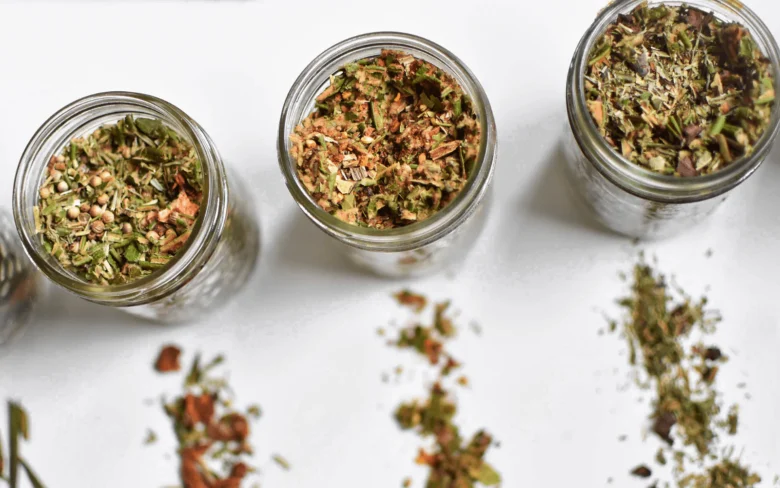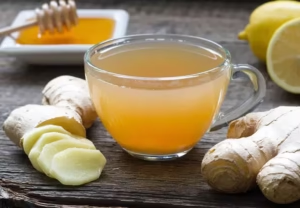Our bodies fight off countless germs every day, but sometimes our immune system needs extra support. Many people turn to expensive supplements or complicated health regimens, not realizing that nature already offers powerful tools to strengthen immunity. Herbal remedies, many of which are inexpensive and easy to find, can give your body the boost it needs without harsh chemicals or side effects. This article will walk you through some of the most effective herbs, explain how they work, and show you simple ways to use them at home.
1. Echinacea – Your First Defense Against Colds
Echinacea is one of the most popular immune-supporting herbs. It helps your body produce more white blood cells, which fight infections. Studies suggest it may shorten the duration of colds and reduce their severity.
You can take echinacea as a tea, tincture, or capsule. For tea, steep dried echinacea leaves or roots in hot water for 10 minutes. Drink it at the first sign of sniffles. If you prefer tinctures, follow the dosage on the bottle and take it for a few days in a row. Keep it in your kitchen so you can act quickly when symptoms appear.
2. Ginger – Warming and Anti-Inflammatory
Ginger does more than add flavor to food. It contains compounds that fight inflammation and support the body’s defense system. Ginger can also help clear congestion and soothe sore throats.
Slice fresh ginger and steep it in hot water for a soothing tea. Add lemon and honey for extra antibacterial power. You can also grate ginger into soups and stir-fries. If fresh ginger isn’t available, ground ginger works in teas and recipes too. Drinking ginger tea regularly can give your immune system a steady, gentle boost.
3. Garlic – Nature’s Antibiotic
Garlic has been used for centuries to fight infections. It contains allicin, a compound with strong antibacterial, antiviral, and antifungal properties. Eating garlic regularly may help prevent colds and speed recovery.
For the best effect, crush or chop garlic and let it sit for a few minutes before cooking—this activates its health compounds. Add it to soups, sauces, or spreads. For a stronger dose, mix raw minced garlic with honey and take a spoonful daily. It may not be great for your breath, but it’s fantastic for your immune health.
4. Turmeric – The Golden Immune Booster
Turmeric’s bright yellow color comes from curcumin, a compound with powerful anti-inflammatory and antioxidant effects. It supports the immune system by reducing stress on cells and fighting harmful bacteria.
You can add turmeric to curries, soups, and rice dishes. For a soothing drink, mix turmeric powder with warm milk (dairy or plant-based), a pinch of black pepper, and honey—this “golden milk” is both delicious and healing. Black pepper improves curcumin absorption, so don’t skip it. Even a small daily amount can help keep your defenses strong.
5. Green Tea – Antioxidant Rich and Immune Friendly
Green tea contains catechins, a type of antioxidant that boosts immune function and fights cell damage. It also has mild antiviral properties, making it helpful during flu season.
Brew green tea by steeping the leaves in hot water for two to three minutes. Avoid boiling water—it can make the tea bitter. Drink one to three cups daily for steady antioxidant support. If you like variety, try matcha, a powdered form of green tea that’s even richer in nutrients.
6. Elderberry – Fighting Flu the Natural Way
Elderberry has a long history as a flu remedy. It can shorten the duration of symptoms and make them less severe. Elderberries are high in antioxidants and vitamin C, both of which support immune health.
You can find elderberry as syrups, lozenges, and teas. Elderberry syrup is popular for children because it tastes sweet and pleasant. You can also make your own syrup at home by simmering dried elderberries with water, honey, and cinnamon. Take a spoonful daily during cold and flu season for added protection.
7. Peppermint – Soothing and Refreshing
Peppermint not only freshens breath—it also contains menthol, which helps open nasal passages and ease breathing. Its antibacterial and antiviral properties add to its immune-boosting abilities.
Peppermint tea is easy to make by steeping fresh or dried leaves in hot water. Drink it when you feel congested or after meals to aid digestion. You can also inhale peppermint steam by adding a few drops of peppermint oil to a bowl of hot water, then covering your head with a towel and breathing deeply.
8. Lemon Balm – Calming for Mind and Body
Stress can weaken the immune system, and lemon balm helps reduce it. This calming herb contains compounds that fight viruses while also relaxing the nervous system.
Make lemon balm tea by steeping fresh or dried leaves in hot water for five to ten minutes. It’s especially nice before bed because it can help you sleep better, which is another key to strong immunity. If you have a garden, lemon balm is easy to grow and can be used fresh all year round.
9. How to Stay Motivated
Starting a herbal routine is easy, but sticking to it requires consistency. One way to stay on track is to make your herbs part of daily rituals—like drinking ginger tea in the morning or turmeric milk before bed. Keep your herbs visible in the kitchen so you remember to use them.
Track your progress in a notebook or use a simple habit-tracking app. Write down when you take each herb and how you feel over time. You can also join online herbal wellness groups for encouragement and recipe ideas. Celebrate small wins, like making it through a month without catching a cold.
Final Thoughts
Building a strong immune system doesn’t have to be complicated or expensive. By adding simple herbal remedies like garlic, ginger, turmeric, and echinacea to your routine, you can give your body steady, natural support. Start with one or two herbs and gradually explore others.
The key is consistency—small daily habits create lasting results. Your immune system works hard for you every day; giving it a little help from nature can make all the difference.




